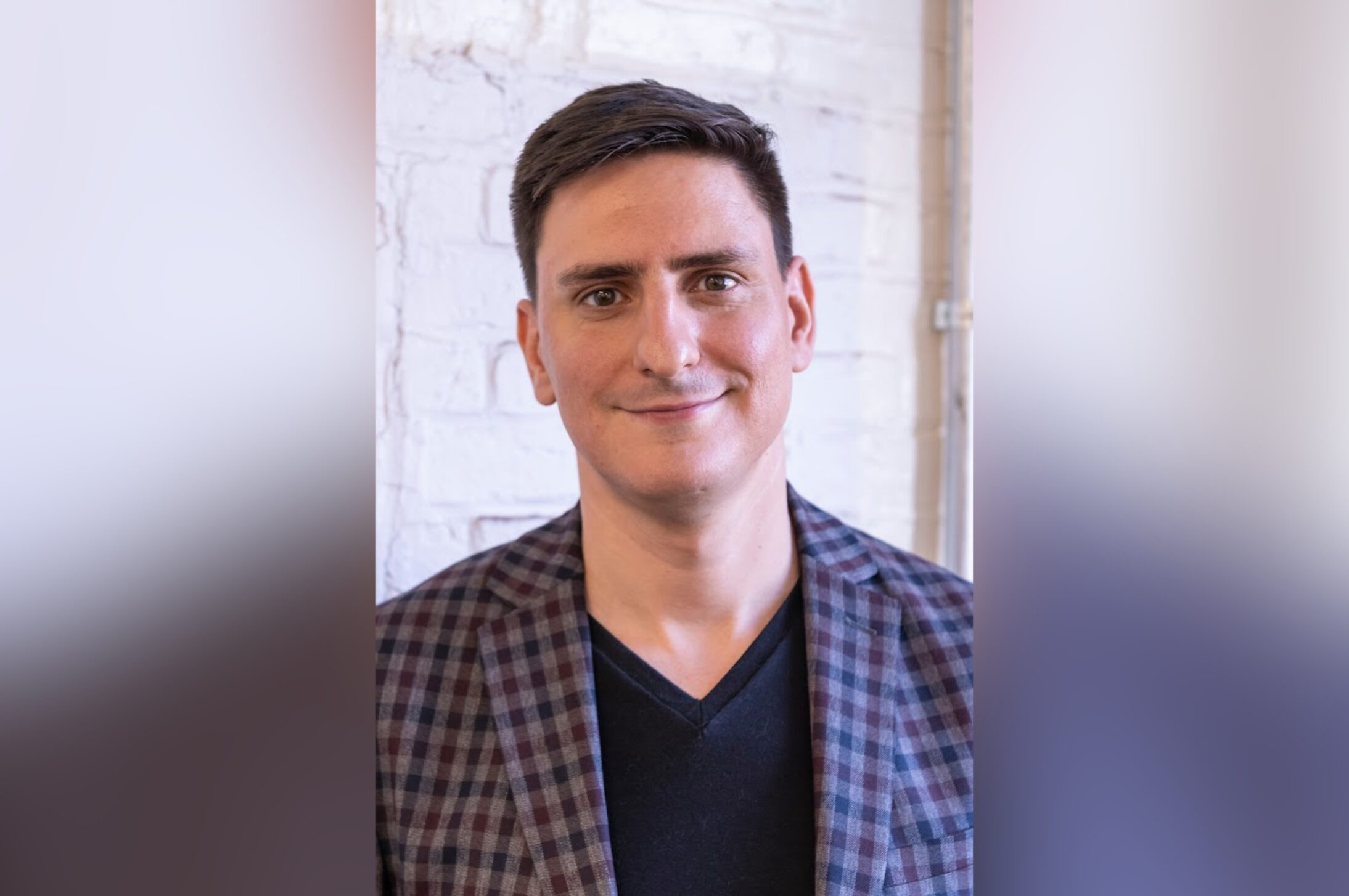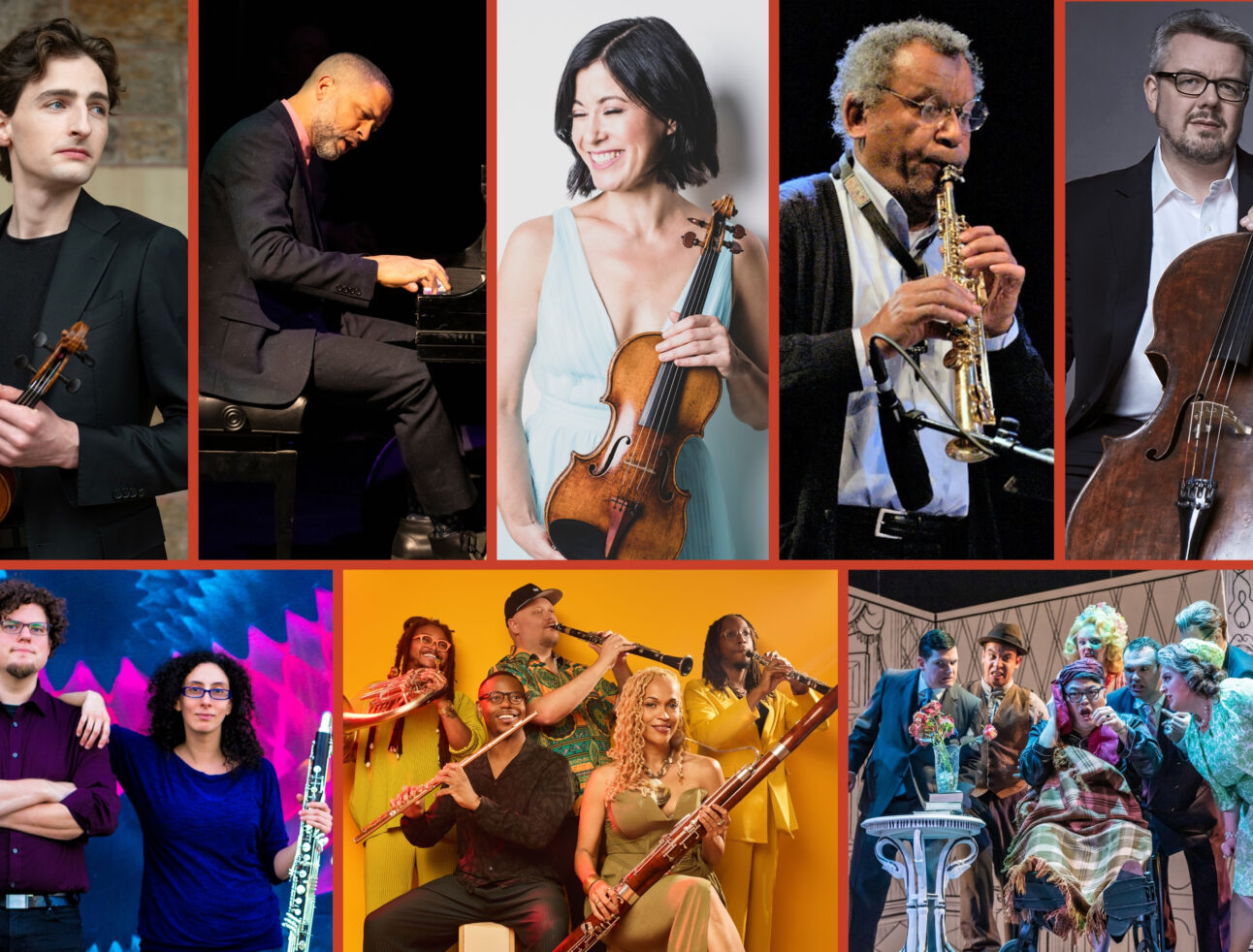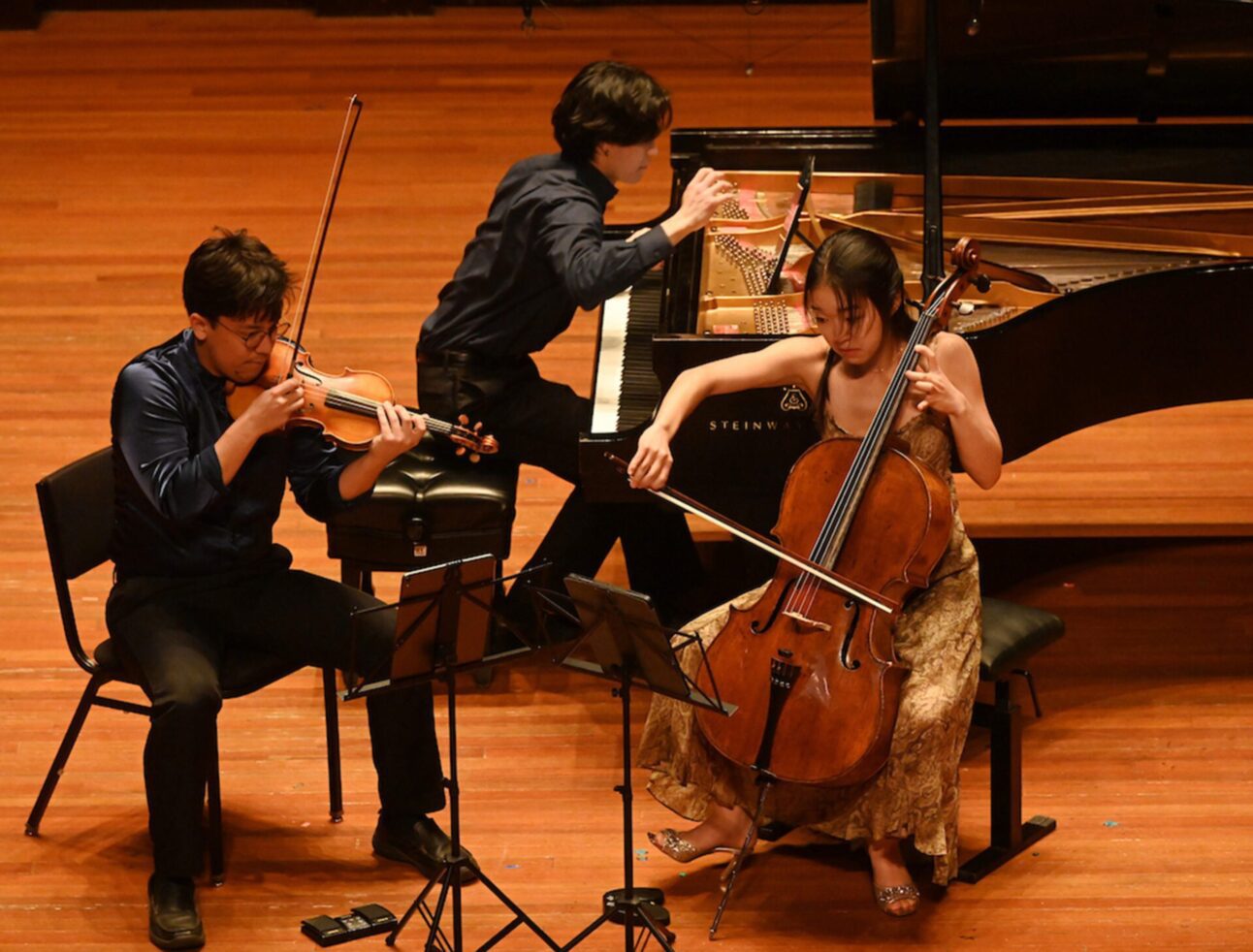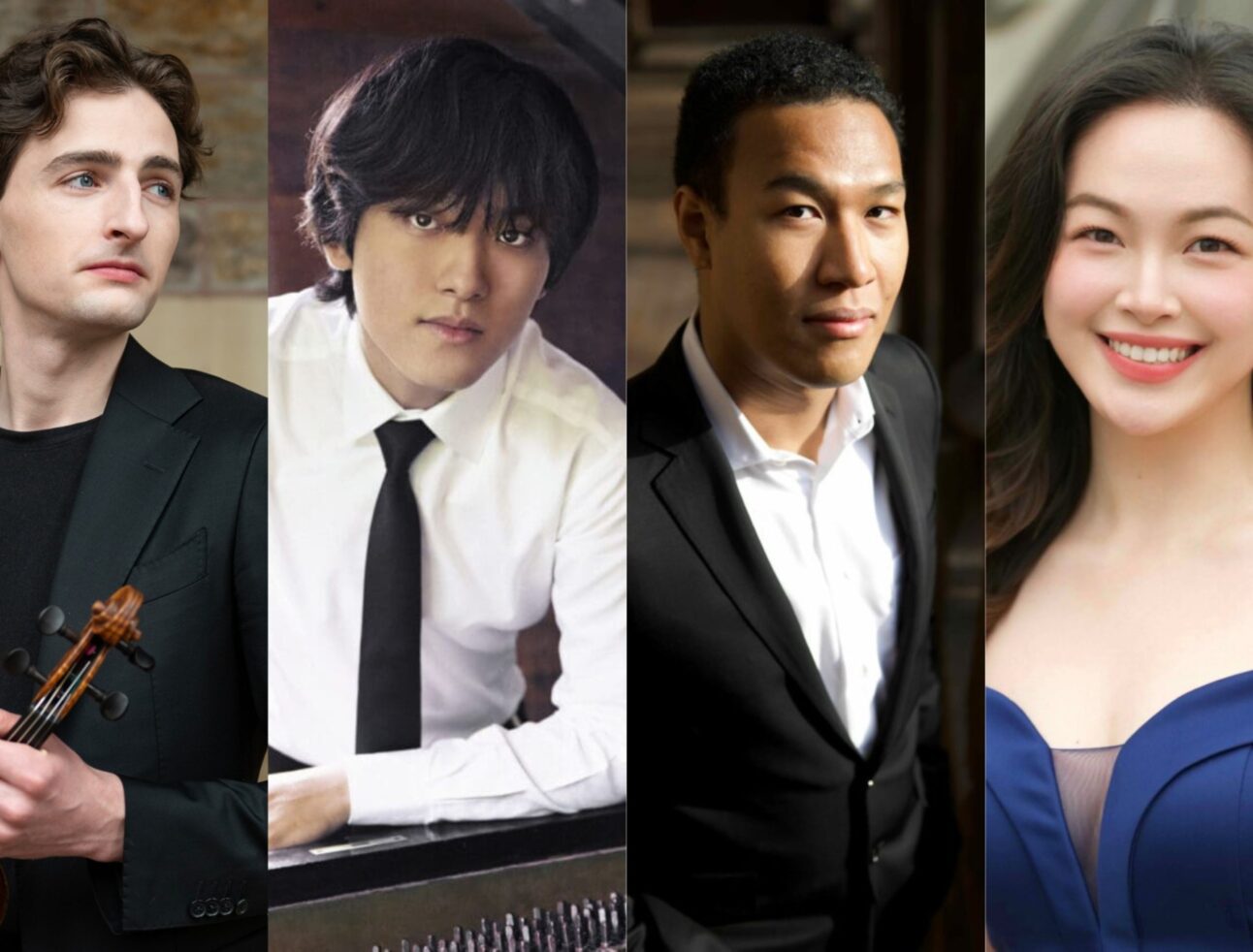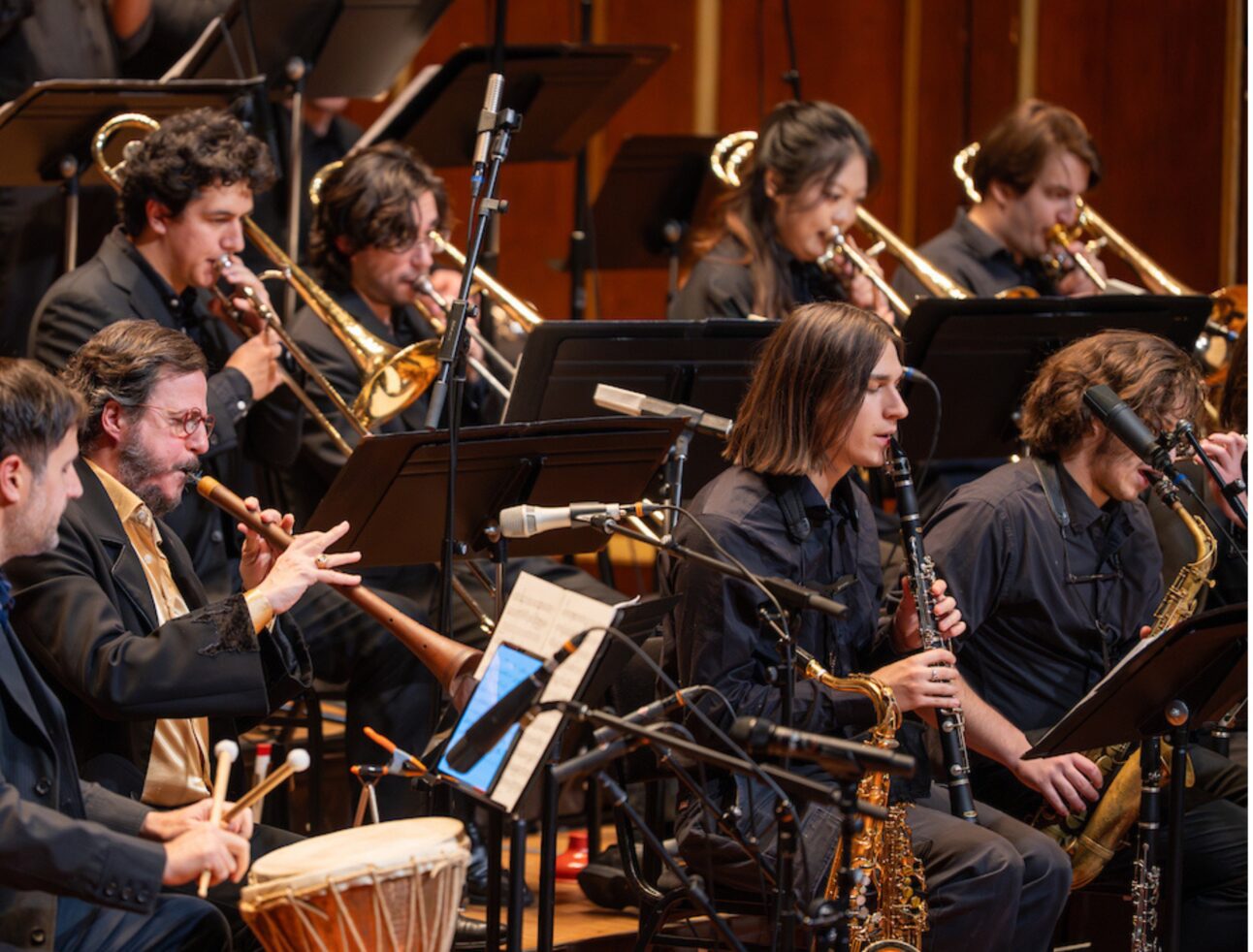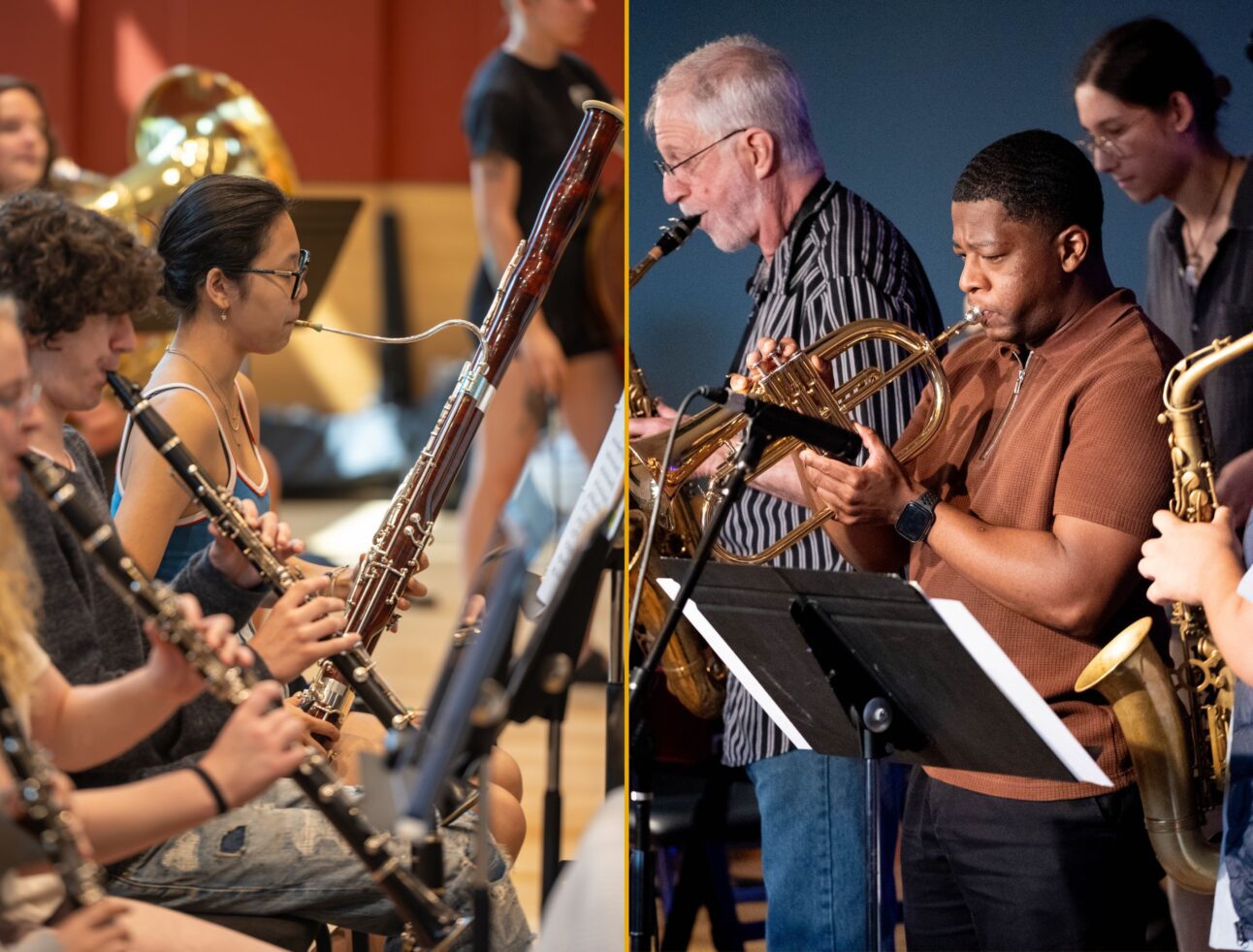Andrew Schartmann grew up playing video games but didn’t give much thought to video-game music until he began, in his early 20s, to explore how music for the Nintendo Entertainment System was made.
“I went through some of the assembly language programming and some of the circuitry,” he said. “The more I started to listen and learn, the more I thought, wow, this is really difficult from a technical standpoint. There’s actually a lot of thought behind it.”
Schartmann is a professor in New England Conservatory’s Music Theory Department, a composer and music theorist whose areas of focus include Viennese classicism and video-game music. In addition to teaching at NEC, he serves as audio director of Yale University’s XRPeds Lab, which uses “extended reality and game technology to develop clinical applications and behavioral interventions focused on improving the health and well-being of youth and young adults.”
Schartmann, whose scholarly publications include an examination of early NES music titled Mario Maestro: How Nintendo Transformed Videogame Music into an Art and books about video-game music pioneer Koji Kondo and “controversial game designer” Keiji Inafune, recently authored Analyzing NES Music: Harmony, Form, and the Art of Technological Constraint, which was released in May by the University of Chicago Press.
“The book,” Schartmann said, “is about early video-game sound” and “innovation through constraint,” explaining that the limitation in early NES games was memory driven. “The composers had to be aware of the programming architecture so they could write music that jibes with it.” The larger focus of Schartmann’s new book is the imagination behind the worlds that were created in five “landmark” games — Super Mario Bros., Dragon Warrior, Metroid, Mega Man 2, and Silver Surfer.
“In terms of the broader creative, artistic context,” he said, “what makes Nintendo special, and the reason I focused on the NES in my book, is the artistic philosophy behind why they put music in their games.
“Some of the early NES composers,” he said, “really made it clear that video-game music should form an integral part of gameplay — that it should impact and draw on how the players are actually feeling. This sounds obvious in retrospect, but at the time there was no model for what game music should be or do. Those composers thought deeply about how music interfaces with the gaming experience.”
In fall 2025, Schartmann will teach a new course at NEC, “Video Game Music: Analysis and Composition.” In part, the course will expand on the notions identified in the title of his latest book and emphasize that there’s an art to working within constraints, whether those are technological, economic, or otherwise, he said.
“The art form is in dialogue with many different forces,” he pointed out. “It’s not like composers sit in an empty room oblivious to the rest of the world creating at will. They’re connected to the context of their time. … And of course, in video games, they’re also dealing with other components of the medium.”
Though Schartmann believes “it’s important to be careful about not grafting our ideas about classical music onto video-game music,” he said “there’s certainly a lot of crossover,” particularly in contexts of limitation and innovation. It’s also important to understand the value of zooming in and exploring such areas of crossover.
“We live in a world where everything is possible and it seems like there are no limitations,” Schartmann said, “but you have to self-impose, and that can be fruitful creatively.”
Learn more about Andrew Schartmann’s work and read a related story about NEC alumna Stephanie Economou ’12, who in 2023 became the first-ever winner of a Grammy Award in the “Best Score Soundtrack for Video Games and Other Interactive Media” category for Assassin’s Creed Valhalla: Dawn of Ragnarok.
